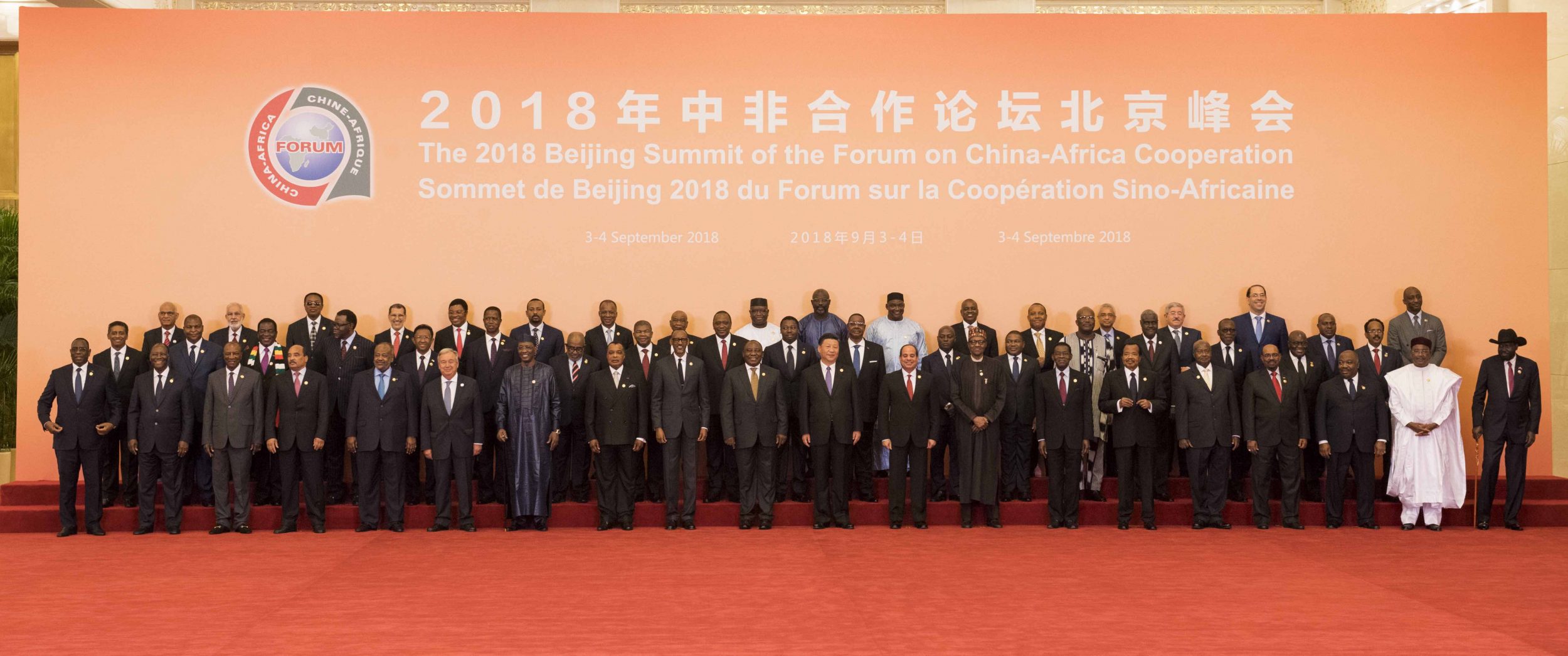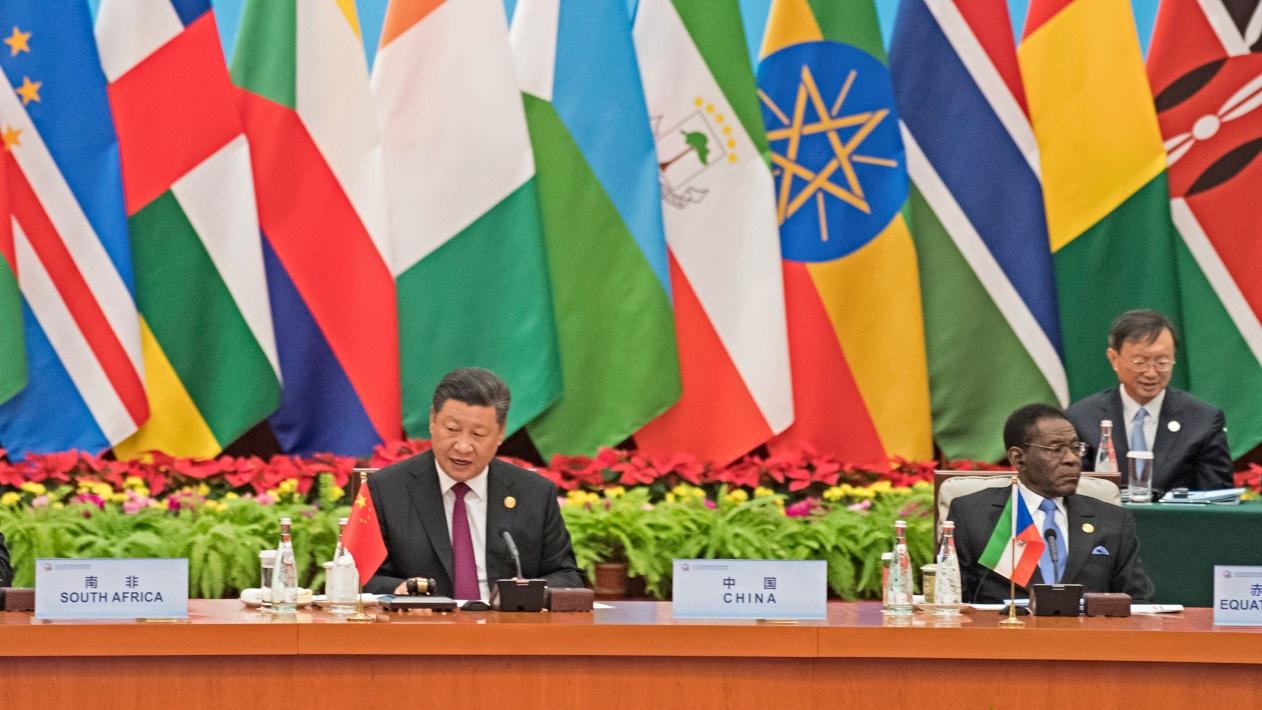Massive Chinese investment in Africa has stirred a debate about its impact on the continent’s industrialization. Whereas some commentators claim that Chinese capitalists are poised to turn Africa into the next factory of the world, the actual evidence is much more sobering, Dominik Kopiński writes.
The topic of Chinese investment in Africa has captured the attention of the public, and rightly so. Chinese Foreign Direct Investment (FDI) has poured into the continent at an exponential rate, prompting expectations that China will somehow jump-start Africa’s development. Some scholars have even gone as far as claiming that Africa may be turned into the ‘next factory of the world.’
However, Chinese FDI has been easier to attract than benefit from – something African countries know only too well. Certainly, it brings jobs, provides capital etc., but is it able to spur the much-needed structural transformation of the continent?
FDI constitutes not merely a transfer of capital, but the transfer of a “package” in which capital, management, and new technology are all combined. Some technologies brought by foreign investors can “leak” into the local economy and benefit indigenous firms by increasing their productivity. This mechanism, known as spillover effects, has become something of a holy grail among policymakers in developing countries.
For spillover to occur, first linkages must be formed. The term “linkages” is credited to Albert Hirschman, one of the godfathers of development economics. In the China-Africa story, linkage describes an interaction between a Chinese investor and a local supplier of inputs such as sand, clay, and wood. The critical question is whether there is any knowledge transfer embedded in this relationship that enables indigenous firms – and the local economy as a whole – to undergo a structural transformation so that they become less reliant on the Chinese presence for job creation, tax receipts and more.
The literature on linkages and spillover effects in China–Africa relations is scant. These effects are notoriously difficult to study in the African context, mostly due to limited data, but also because one needs to gain cess to both Chinese and local firms to understand their interactions, motives etc. and what these yield in terms of productivity.
Spillover in Zambia
In our recently published research, we set out to examine the case of Zambia, which is at the forefront of Chinese expansion in Africa. China is the top investor in Zambia, it poured US$ 3.055 billion into the country in 2020 and the number of Chinese companies in Zambia is estimated at almost 900 – aside from Nigeria, this is the highest number on the continent. The ‘all-weather’ Sino-Zambian friendship, which dates back to the anti-colonial struggle, has yielded a robust Chinese business community whose affiliation to Zambia is often very strong. The scale and duration of Chinese investment in Zambia made it a compelling location to research spillover. If it could not be found here, then where would it be found?
In Zambia, we surveyed 25 Chinese firms and identified only 16 local suppliers that have links – which were relatively weak or accidental – to Chinese investors. On average, only 27.3% of procurement by value is sourced from Zambian companies, and, more importantly, this mostly involves basic products (e.g., wood, stone, clay) that can be characterised as low technology intensity. The bulk of inputs are either imported from China or bought in Zambia but from affiliates of foreign companies (e.g., South African, or American). More complex items, including machinery and equipment, are almost without exception imported from China.
These findings are not particularly surprising but the question of why there are so few linkages and even fewer spillovers is worth probing. The characteristics of foreign investors play a decisive role – some may hinder while others facilitate linkage formation and spillover effects. What are the desirable characteristics? Here, the literature offers some clues. It is important to understand how foreign investors enter the local economy (entry strategy); how long they have been around (length of presence in the host country); what kind of inputs they need (technology intensity of goods); and whether their nationality matters.
The majority of Chinese firms operating in Zambia lack the desirable characteristics and as a result, Chinese FDI is unlikely to transform Zambia into something it is currently not. The fact they venture into the host economy predominantly as greenfield investment, which involves building a factory from scratch (instead of acquiring local firms), hinders rather than facilitates, linkage formation and technology diffusion. The goods they produce are of low-to-medium technology intensity, which significantly limits what indigenous firms can learn from their Chinese partners. Neither distance from China nor length of time spent in Zambia affect their procurement strategies.
Chinese investment, regrettably, brings little in terms of linkage formation and spillover effects, and those rare linkages that do exist relate to low technology inputs that offer little hope for any long-awaited industrial upgrading. Rather than blaming Chinese investors, however, we need to turn to the question of Zambia’s institutional capacity and consider why subsequent governments have largely failed to build adequate local supply capacity.
Indigenous capital in Zambia has always been relatively weak, particularly vis-à-vis foreign companies, and has played only a marginal role in the supplying of inputs. Despite this, consecutive Zambian governments have done little to remedy the situation. Instead, they have consistently failed to create an environment conducive to the growth of indigenous capital.
First, they have been unable to provide a stable macroeconomic environment – high-interest rates and, relatedly, the difficulty local firms face in accessing capital, affects the growth of local firms and renders them ill-equipped to act as industrial suppliers. Second, there is no institutional setup, such as public credit or subsidies, that would help local firms survive and thrive. And lastly, they failed to put in place the so-called local content policies which legally require firms to use domestically produced inputs.
Despite being part and parcel of the developmental discourse for decades, local content in Zambia is widely considered ‘a faltering experience’ that is ‘limited, shallow and inefficient.’ With regards to Chinese FDI, there are two issues at stake: monitoring and enforcing existing local content-related laws, with institutions such as the Zambia Development Agency, Bank of Zambia, Ministry of Commerce and Trade, and Zambian Statistical Office, struggling to do their job effectively.
The chances of Chinese investment leading to structural transformation are limited and this will remain the case unless local industrial policy plays a more transformative role. In terms of the Chinese presence, Former Minister of Foreign Affairs Vernon Mwaanga points to a paradox of sorts: ‘the relationship with China is an all-weather type of friendship,’ yet at the same time ‘Zambia learns very little from China.’ The real question, therefore, remains if and how China can contribute to structural transformation, or whether Sino–Zambian relations are merely a case of diversifying dependency.
This research was funded by the National Science Centre, Poland, under grant number UMO-2017/26/M/HS4/00150.
Photo credit: Pexels





